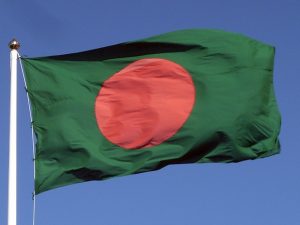Legal empowerment has garnered considerable attention globally in recent years as a valuable tool in addressing the justice gap, where over 5 billion people currently have unmet legal needs. Legal empowerment can be defined as a collective expression of initiatives that can enhance the ability of people, especially the vulnerable and marginalized, to know, use, and shape the law for protecting their entitlements and rights.
Although the term legal empowerment emerged only at the beginning of the 21st century, it encompasses activities that non-state actors around the world have reportedly been employing since as early as the 1950s. This article explores the history of legal empowerment in Bangladesh post-1971. It will also highlight the factors that influenced the movement since 1972.
When Bangladesh emerged from the war of liberation in 1971, there was very little room for state and non-state actors to focus on anything other than rehabilitation and reconstruction after the decades of systemic discrimination and exploitation that the country faced prior to its independence. The assassination of the father of the nation, Sheikh Mujibur Rahman, in 1975 and the military-backed government that followed negatively impacted legal empowerment activities during the 1970s.
Nevertheless, some relevant initiatives were undertaken during the 1970s. For instance, an incredibly progressive constitution was drafted shortly after 1971. The law banning abortion was temporarily suspended, keeping in mind that many women around the country were raped by Pakistani soldiers and their collaborators during the war in 1971, and a 10 percent quota for women in government and non-government jobs was introduced. Bangladesh Mahila Parishad, a rights organization led by women, presented a 16-point demand memorandum to the government, seeking equal rights for women in divorce and inheritance, along with legal measures to eradicate dowry and polygamy, among other things.
Bangladesh was under military rule during the latter half of 1970s and throughout the 1980s. Non-state civil society organizations (CSOs) were mostly engaged in restoring democracy and had to remain low-key due to state-imposed restrictions for quite some time. Even so, they succeeded in compelling the state to take initiatives that promoted legal empowerment. For example, their pressure led to the enactment of the Dowry Prohibition Act 1980, the National Drug Policy 1982, and the establishment of family courts in 1985. However, many informed observers believe that the military governments undertook these initiatives mainly to garner local and global legitimacy.
Nevertheless, CSOs also strongly protested against the 8th amendment of the constitution during this period, which, among other things, sought to establish Islam as the state religion. Bangladesh also saw some non-governmental organizations (NGOs) such as Madaripur Legal Aid Association, Ain O Salish Kendra, and BRAC making attempts to increase legal literacy and legal aid programs in the 1980s.
Bangladesh’s transition to democracy following the fall of the military dictator in 1990 and increased availability of sources of international funding in the 1990s represented a golden age for CSO/NGO activities. Apart from expanding their work on legal literacy and legal aid, NGOs increasingly became involved in developing alternative dispute resolution systems, election monitoring, promoting public interest litigation, governance and transparency, and capacity building.
CSOs and NGOs raised their voice in unison against issues such as religious edicts by imams and maulanas, trafficking of women and children, acid attacks, as well as rape and murder in police custody. Sustained efforts from the 1990s yielded some positive results. To cite a few examples, we saw the enactment of the Acid Offences Prevention Act 2002, the Acid Control Act 2002, and the Prevention of Oppression Against Women and Children Act 2000.
Concurrently, the activities of a few NGOs during the 1990s resulted in a perception that they were becoming too involved in politics, which subsequently had detrimental consequences for civic activities. While the government’s increased involvement in legal empowerment activities was evident from 2000 onwards, notably through initiatives to establish a government-backed legal aid system, the diminishing role of the NGOs also began at this point.
Nevertheless, one could cite some positive legal and policy changes in the field of legal empowerment during this period. These hard-earned legal and policy changes involved the recognition of transgender identity, the banning of the two-finger test in rape cases, the issuing of guidelines on arrest and remand of suspects in criminal cases, and the enactment of the Right to Information Act in 2009.
However, CSOs and NGOs are presently facing certain challenges that could explain their diminishing role in the Bangladeshi body politic. First, there has been a gradual shrinking of civil society space due to the enactment of various laws. This space will be further restricted if the political process remains uncontested. Second, the NGO sector as a whole has become less diverse, as it now tends to prioritize service delivery similar to the private sector, rather than emphasizing legal empowerment activities. Finally, there has been a sharp decline in foreign funds, reaching a six-year low in 2023.
These challenges have pushed CSOs and NGOs, particularly those working on legal empowerment, towards an existential crisis. Thus, moving forward, it is imperative that a process is initiated to identify new strategies, which will provide a more sustainable and effective paradigm to preserve and protect citizens’ entitlements and rights.
































